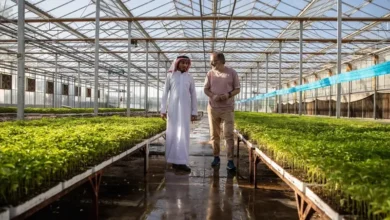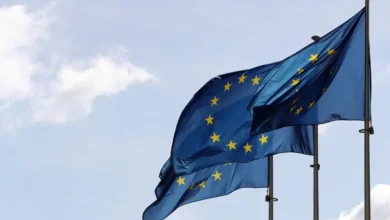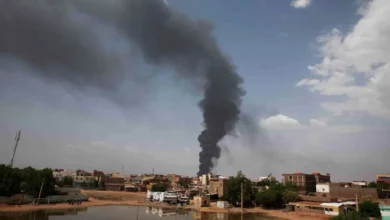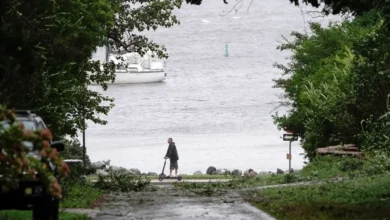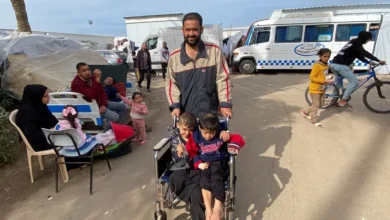In India, desperate kidney sellers scammed on Facebook
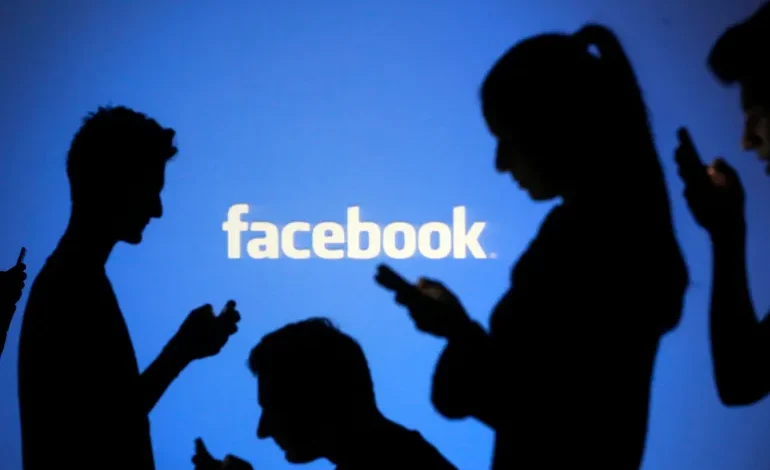
One morning in February 2020, a couple of months after she had an accident and was unable to work, Surya decided to sell one of her kidneys. The mother of two girls – already reeling under loans of 500,000 Indian rupees ($6,101) – had been the sole breadwinner since her husband lost his job.
Although she knew the sale of kidneys is illegal in India, she went online on her smartphone and typed in “kidney” and “sell”, and dozens of pages opened up. On a Facebook page Surya found, she put down her number and posted that she needed to sell one of her kidneys.
Days later, she received a call from a man who identified himself as Dr Sandy. He told her the Gitroh Medical Center in Ghaziabad, near the capital New Delhi, was interested in buying her kidney for 10 million rupees ($122,000). It was enough for Surya to repay her debts many times over and pay her family’s expenses for years.
All she had to do was fill out a form and pay 8,000 rupees ($97.6) for a donor card, which would give her access to the sale process.
Just before paying, Surya found the number of the MOHAN Foundation (Multi Organ Harvesting Aid Network), a non-profit that promotes organ donations and issues donor cards for those who wish to donate organs after they die.
“There is no payment for the donor card,” the foundation’s helpline operator told her. “I think you’ve [nearly] been the victim of a scam.”‘Extreme goodness with extreme wickedness’
Dr Sunil Shroff, a British-trained transplant surgeon, founded MOHAN in 1997 when he returned to India and found long lists of patients waiting for kidney transplants.
Every year, nearly one million Indians are diagnosed with chronic kidney disease and 200,000 people reach end-stage kidney failure, leading to an alarming number of deaths.
In the early days of MOHAN, there were 20 organ donations a year in Tamil Nadu, says Dr Shroff. Today there are 140 to 180 a year, and the state programme has spread to other regions like Kerala, Andhra Pradesh, Karnataka, Rajasthan, Maharashtra and Gujarat.
But scams also spread fast, and the MOHAN Foundation soon found out its name was used by fake middlemen to fish for potential victims. Calls like Surya’s come in so frequently that Dr Shroff and his team began collecting them to monitor the situation.
“The registration cost 7,894 [rupees], only when that is done can we proceed. I don’t have the time to waste,” says the so-called Dr Karan in a WhatsApp conversation obtained by the MOHAN Foundation.
“Sir in case I sell my kidney how many years I live with one kidney?” asks the victim.“Lol, You can live as long as life offers you.” answered the fraudster.
“Actually it’s difficult to arrange 7,894rs at this time, I don’t have money to buy food for my kids.”
“I can’t help you with this, If you’re serious do it.”
Another man called saying he had paid 9,999 rupees ($122) for a “living donor card” to the fake National Kidney Foundation and that after receiving the phoney card, he lost contact with them.
Keeping track of the scams, Dr Shroff has realised there are still gaps to fill.“This programme has done extreme goodness with extreme wickedness,” he says. “When somebody donates unknowingly to somebody else, it is the noblest gesture, but when someone exploits human beings, it is the worst.”
When the MOHAN Foundation suggested Surya file a complaint, she was initially sceptical, fearing that the police might cause her problems. But the foundation paved the way for her by supporting the complaint along with many others reported to the Chennai police.
“I decided to report this story to save those about to make this mistake,” says Surya. “We can fight this only if we make it public.”
Deceased donor organ donation is limited in India, and most transplants are from living donors and between “near relatives” – parents, siblings, spouses – or “non-near relatives” such as friends or distant relatives with proven bonds of affection. As well-regulated as this system appears to be, the risk for organ trafficking and scams is high.
A different kind of Facebook marketplace
Accessible to all and highly valued in India, Facebook has become, over the past decade, a marketplace to buy and sell all sorts of things, including organs. Or at least it promises that, as desperate sellers and buyers look for hope online even as scammers run amok trying to cash in on their misery.Before the advent of social media and widespread and affordable internet access, the sale and purchase of illegal kidneys took place on the street by word of mouth.
Rules to govern organ transplants came into place a few years after the tsunami of 2004 devastated parts of the subcontinent, including Surya’s home state of Tamil Nadu, killing more than 8,000 people. With no jobs or homes left, many of the poorer survivors turned to selling their organs to get much-needed cash. The kidney market expanded so much that one of the districts called Villivakkam was nicknamed “Kidneyvakkam”.
Tamil Nadu had been one of the first states to initiate cadaver transplants after the Transplantation of Human Organs and Tissues Act was passed in 1994. In 2008, it paved the way nationwide to promoting cadaver organ donation through the Cadaver Transplant Program (CTP) – renamed the Transplant Authority of Tamil Nadu (TRANSTAN) in 2015 – which still establishes the standard operating procedures, including for living donations.
While the system has made the actual sale of kidneys more difficult, scammers who want to sell people nothing more than a fake donor card continue to thrive as cheap and easy access to the internet – nearly half of India’s 1.4 billion population has online access – has made platforms like Facebook an easy place to market anything.
That was once again visible when the COVID-19 pandemic hit in 2020. As people lost their jobs and incomes shrank, many resorted to trying to sell their organs. Facebook pages and groups popped up, followed by thousands of people like Surya. There, fake middlemen impersonating doctors and well-known hospitals offered to buy their organs – after potential sellers pay an initial amount, for a “donor card” or as a “registration fee”.




